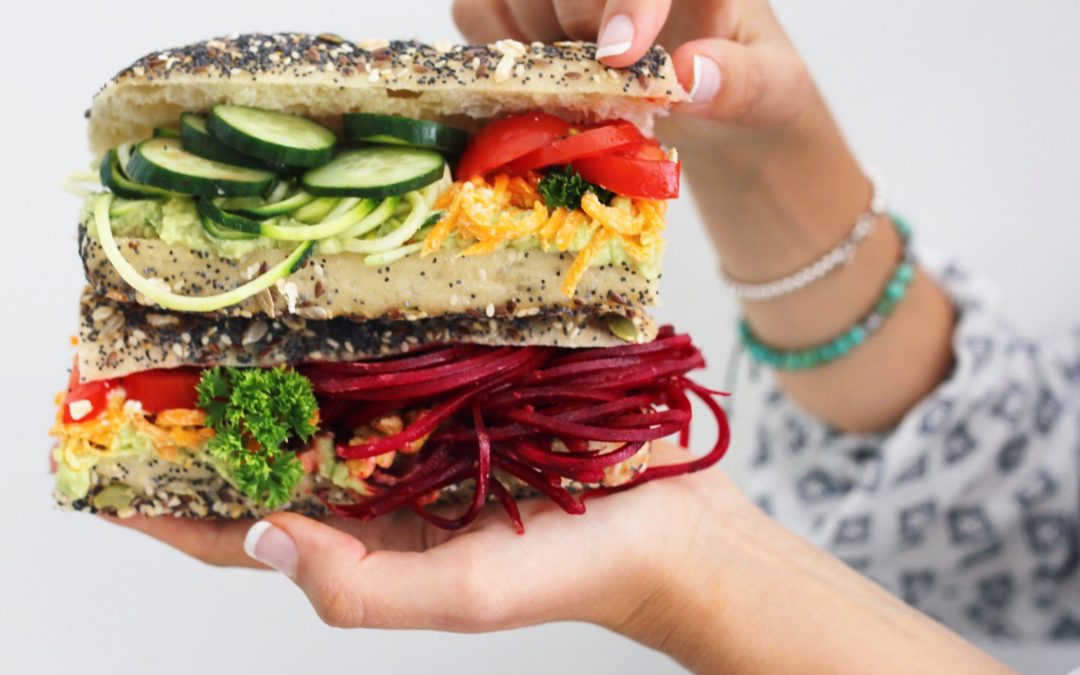A question we are often asked is whether it is better to eat cooked or raw food. It’s a good question and there are different perspectives on this which we will explore and summarise. As always, context is important. In most cases, we believe a combination of both is best.
There are so many fads out there and well meaning people who have ‘cured’ their condition through making changes to their diet. They have a genuine belief that everyone will benefit from following their routine. The reality is we are all different and the best thing we can do is pay attention to our own needs, ideally with the help of a qualified health practitioner.
Application of heat to any substance will change the molecular structure in some way. Some nutrients may be lost, some minimally changed, and some may be enhanced. Nutrient profile will also alter depending on ways in which foods are heated, e.g. boiling, frying, baking, and the duration they are heated.
Here are some viewpoints from both camps:

The argument for raw food:
Firstly, a raw food diet involves eating foods that are both not cooked and not processed in any way, which includes processes such as pasteurisation and homogenisation. However some heat is permitted. For food to be classified as “raw” the heating temperature must not rise above 48 degrees C (this temperature varies slightly in different references). Dehydration (using prescribed temperature is often used in raw food preparation.
- Raw foods activists view this way of eating as being closer to what was intended, consuming food in its most natural, unchanged state.
- Certain nutrients, particularly some B vitamins and Vitamin C, as well as certain phytochemicals are reduced when food is heated.
- Raw food is considered “alive”, that is, contain enzymes which are denatured in cooking. There is some debate on whether food enzymes are beneficial (a topic for another article).
- Raw food may have an alkalising effect on the body, which may assist with reducing inflammation. There is certainly a growing body of evidence supporting increasing unprocessed foods with a recent study showing that following an ‘anti inflammatory diet’ (note this is not all raw) reduces likelihood of developing chronic illness.
- Certain oils, particularly polyunsaturated oils, become damaged and may even become toxic when heated. Although only cold pressed oils are allowed in a raw food diet and some raw food advocates avoid all oils.

The argument for cooked food:
- Harmful pathogens, such as bacteria, are largely destroyed in cooking. Therefore, cooking reduces possibility of food borne illnesses occur as a result of contamination. This applies particularly to raw or undercooked meats, fish, eggs and dairy, although can also occur in fruits and vegetables. Hepatitis outbreaks have occurred a number of times due to contaminated fruits.
- Improved digestibility. Pulses cannot be eaten raw and even undercooking can be toxic and create digestive discomfort. Cooking also reduces so called ‘anti-nutrients’ such as phytates and lectins. Starches, in potatoes for example, are not digestible raw.
- Some nutrients are enhanced during cooking, such as lycopene in tomatoes.
- From an energetic perspective, raw food is considered ‘cold’ and may hinder digestion
- Cooked food is warming and comforting in winter months, which also coincides with most root vegetables (often used in soups and stews) being in season, even though we can purchase these all year. Warm soup, turmeric lattes are very welcome in the colder months.
- Vegetables in the brassica family (also called cruciferous), that is broccoli, cabbage, brussel sprouts, may inhibit thyroid function, due to goitrogens, when consumed raw, particularly in large quantities.
- Excluding cooked foods, by definition excludes foods that cannot be eaten/digested raw, e.g. pumpkin, kumera, potato, eggplant, a number of root vegetables, e.g. parsnip, turnip as well as grains and pulses. As such a completely raw food diet may be restrictive.
- Those with impaired digestion or during convalescence may benefit from including easily digested foods such as pureed foods and broths.
- To achieve compliance in a raw food diet requires a great deal of commitment in order to make food interesting, nutritious and enjoyable.
Our Verdict:
Unless prescribed a particular diet for a specific reason, by a health practitioner, we advocate a balance of both raw and cooked foods (and depends upon the food, as discussed), lots of variety and nutrient density (and bioavailability) choosing organic and seasonal as much as possible, as fresh as possible, while avoiding processed and GMO foods.







